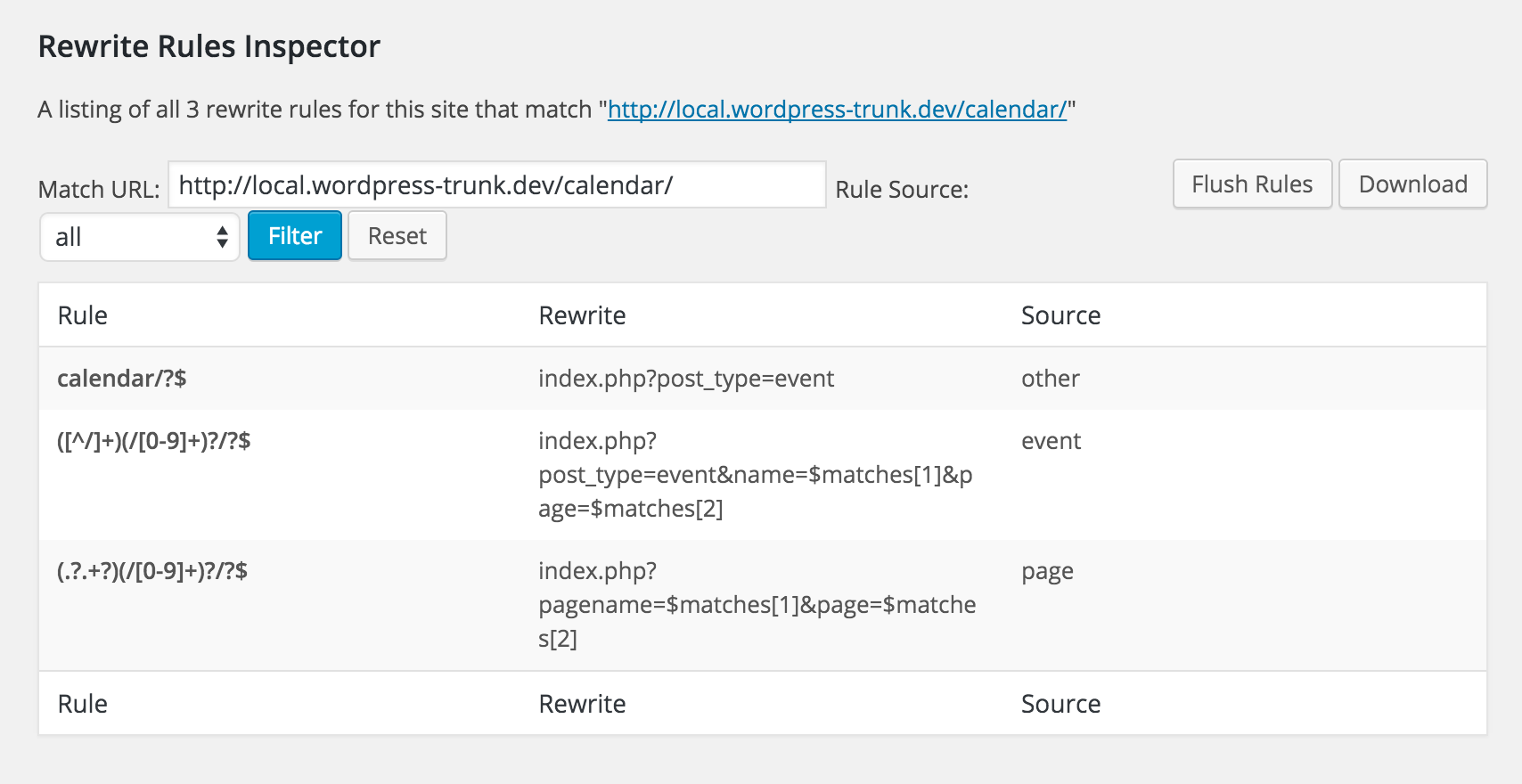Looking through the answers here I think there is room for a better solution that combines some things I learned above and adds auto-detection and prevention of duplicate post slugs.
NOTE: Make sure you change 'custom_post_type' for your own CPT name throughout my example below. There are many occurrences, and a 'find/replace' is an easy way to catch them all. All of this code can go in your functions.php or in a plugin.
Step 1: Disable rewrites on your custom post type by setting rewrites to 'false' when you register the post:
register_post_type( 'custom_post_type',
array(
'rewrite' => false
)
);
Step 2: Manually add our custom rewrites to the bottom of the WordPress rewrites for our custom_post_type
function custom_post_type_rewrites() {
add_rewrite_rule( '[^/]+/attachment/([^/]+)/?$', 'index.php?attachment=$matches[1]', 'bottom');
add_rewrite_rule( '[^/]+/attachment/([^/]+)/trackback/?$', 'index.php?attachment=$matches[1]&tb=1', 'bottom');
add_rewrite_rule( '[^/]+/attachment/([^/]+)/feed/(feed|rdf|rss|rss2|atom)/?$', 'index.php?attachment=$matches[1]&feed=$matches[2]', 'bottom');
add_rewrite_rule( '[^/]+/attachment/([^/]+)/(feed|rdf|rss|rss2|atom)/?$', 'index.php?attachment=$matches[1]&feed=$matches[2]', 'bottom');
add_rewrite_rule( '[^/]+/attachment/([^/]+)/comment-page-([0-9]{1,})/?$', 'index.php?attachment=$matches[1]&cpage=$matches[2]', 'bottom');
add_rewrite_rule( '[^/]+/attachment/([^/]+)/embed/?$', 'index.php?attachment=$matches[1]&embed=true', 'bottom');
add_rewrite_rule( '([^/]+)/embed/?$', 'index.php?custom_post_type=$matches[1]&embed=true', 'bottom');
add_rewrite_rule( '([^/]+)/trackback/?$', 'index.php?custom_post_type=$matches[1]&tb=1', 'bottom');
add_rewrite_rule( '([^/]+)/page/?([0-9]{1,})/?$', 'index.php?custom_post_type=$matches[1]&paged=$matches[2]', 'bottom');
add_rewrite_rule( '([^/]+)/comment-page-([0-9]{1,})/?$', 'index.php?custom_post_type=$matches[1]&cpage=$matches[2]', 'bottom');
add_rewrite_rule( '([^/]+)(?:/([0-9]+))?/?$', 'index.php?custom_post_type=$matches[1]', 'bottom');
add_rewrite_rule( '[^/]+/([^/]+)/?$', 'index.php?attachment=$matches[1]', 'bottom');
add_rewrite_rule( '[^/]+/([^/]+)/trackback/?$', 'index.php?attachment=$matches[1]&tb=1', 'bottom');
add_rewrite_rule( '[^/]+/([^/]+)/feed/(feed|rdf|rss|rss2|atom)/?$', 'index.php?attachment=$matches[1]&feed=$matches[2]', 'bottom');
add_rewrite_rule( '[^/]+/([^/]+)/(feed|rdf|rss|rss2|atom)/?$', 'index.php?attachment=$matches[1]&feed=$matches[2]', 'bottom');
add_rewrite_rule( '[^/]+/([^/]+)/comment-page-([0-9]{1,})/?$', 'index.php?attachment=$matches[1]&cpage=$matches[2]', 'bottom');
add_rewrite_rule( '[^/]+/([^/]+)/embed/?$', 'index.php?attachment=$matches[1]&embed=true', 'bottom');
}
add_action( 'init', 'custom_post_type_rewrites' );
NOTE: Depending on your needs, you may want to modify the above rewrites (disable trackbacks? feeds?, etc). These represent the 'default' types of rewrites that would have been generated if you didn't disable rewrites in step 1
Step 3: Make permalinks to your custom post type 'pretty' again
function custom_post_type_permalinks( $post_link, $post, $leavename ) {
if ( isset( $post->post_type ) && 'custom_post_type' == $post->post_type ) {
$post_link = home_url( $post->post_name );
}
return $post_link;
}
add_filter( 'post_type_link', 'custom_post_type_permalinks', 10, 3 );
NOTE: You can stop here if you are not worried about your users creating a conflicting (duplicate) post in another post type that will create a situation where only one of them can load when the page is requested.
Step 4: Prevent duplicate post slugs
function prevent_slug_duplicates( $slug, $post_ID, $post_status, $post_type, $post_parent, $original_slug ) {
$check_post_types = array(
'post',
'page',
'custom_post_type'
);
if ( ! in_array( $post_type, $check_post_types ) ) {
return $slug;
}
if ( 'custom_post_type' == $post_type ) {
// Saving a custom_post_type post, check for duplicates in POST or PAGE post types
$post_match = get_page_by_path( $slug, 'OBJECT', 'post' );
$page_match = get_page_by_path( $slug, 'OBJECT', 'page' );
if ( $post_match || $page_match ) {
$slug .= '-duplicate';
}
} else {
// Saving a POST or PAGE, check for duplicates in custom_post_type post type
$custom_post_type_match = get_page_by_path( $slug, 'OBJECT', 'custom_post_type' );
if ( $custom_post_type_match ) {
$slug .= '-duplicate';
}
}
return $slug;
}
add_filter( 'wp_unique_post_slug', 'prevent_slug_duplicates', 10, 6 );
NOTE: This will append the string '-duplicate' to the end of any duplicate slugs. This code cannot prevent duplicate slugs if they already exist prior to implementing this solution. Be sure to check for duplicates first.
I would love to hear back from anyone else who gives this a go to see if it worked well for them as well.


